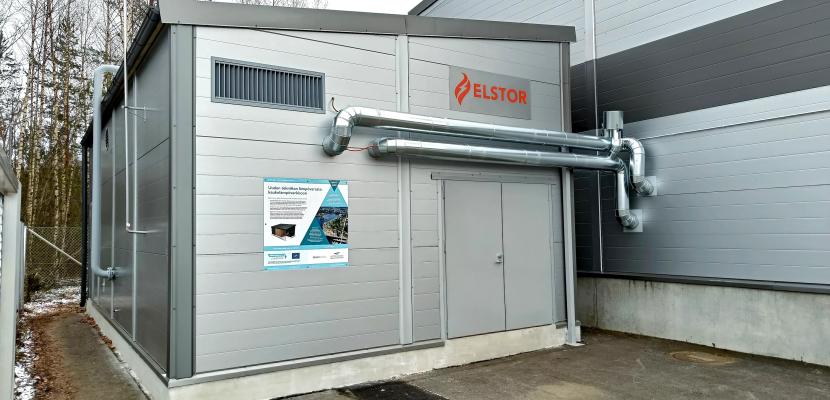
Heat storage converts electricity into heat in district heat network in Lappeenranta

About this good practice
In 2022, the emissions from district heating in Lappeenranta were 52.4 ktCO2e, which accounted for 15.1% of the city’s total emissions. Lappeenranta aims to become carbon-neutral by 2030. The Finnish energy system is transitioning from fossil fuels to renewable energy sources, such as wind and solar power. However, this transition introduces fluctuations in electricity production and, consequently, in prices.
The above-mentioned goals and challenges are addressed through the implementation of thermal energy storage. The charging of this storage is optimized to coincide with the lowest electricity prices throughout the day. An AI-based charging algorithm automatically selects the optimal charging hours by monitoring storage capacity, upcoming electricity prices, and predicted heat demand. The stored heat is then used as needed in district heating, reducing reliance on fossil fuels and thus lowering emissions, while also being economically viable. As the cost of district heat production decreases, customer prices can also be reduced.
The first thermal storage pilot was funded by the EU Life IP project CANEMURE and the City of Lappeenranta, and it was implemented in cooperation with the commercial partner Elstor. The main beneficiaries of this good practice are the customers, as it currently supplies heat to the district heating network in Selkäharju, owned by Lappeenrannan Energia.
Resources needed
The overall cost of thermal energy storage project has been 617,980.26 €, half of which was covered by EU Life IP funding. In addition to Elstor’s employees, one project worker from City of Lappeenranta has been involved. The cost of thermal storage was 341,699.98 € and infrastructure 138,129.92 €.
Evidence of success
During the winter of 2023-2024, Elstor's energy storage system produced 600 MWh of district heating, meeting 32% of Selkäharju's heat demand, which is equivalent to heating 100 houses. Over 6 months, it saved over 800 MWh of natural gas primary energy and reduced CO2 emissions by 160 t. The electricity-to-heat efficiency was 89%. With electricity costs at 5 cents/kWh, which is 26% below the market average, the project achieved nearly 30,000 € in cost savings from fuel and emission reductions.
Potential for learning or transfer
There are currently four Elstor energy storages in operation, all in South Finland. The energy storage was first piloted in Mustola district heat network, and in 2023, it was relocated to Selkäharju district heat network, both in Lappeenranta. Other three are used in industrial process steam production. Storage capacity of basic unit is 5 MWh, which reduces approximately 480 tCO2 emissions annually. Storage can be scaled up by combining two or more basic units. One of the current energy storages is a double unit with 10 MWh capacity. Three additional supply contracts have already been signed, one will be equipped in West Finland and locations of other two haven’t yet been disclosed.
The commercial partner of this pilot project, Elstor, is a member of Greenreality Network coordinated by the City of Lappeenranta. The network operates in the energy and environmental sector in South Karelia creating sustainable growth and new business opportunities for its members and the whole region.
Further information
Website
Good practice owner
You can contact the good practice owner below for more detailed information.

